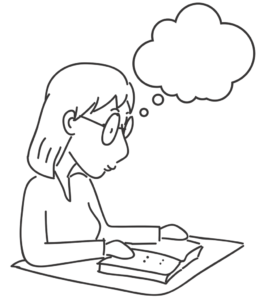You look at the clock. It’s 1 a.m. You’ve been trying to sleep since 11, and you’re still awake. Your mind races. Your muscles are tense. You think you’ll never get any rest. Sound familiar? If so, you are one of 60 million people in the U.S. who suffer from some form of insomnia.
A recent survey by the National Sleep Foundation indicates that 58 percent of adults in America experience insomnia at least a few nights a week. Insomnia increases with age, afflicting approximately 30 percent of men and 40 percent of women.
While insomnia has many causes, many of us can’t sleep because we are simply too stressed out. Stress, a major contributor to all sorts of health issues – from weight gain to heart problems – seems unavoidable in today’s fast-paced world.
We may not be able to eliminate all stress from our lives, but we can minimize it. Here are some strategies:
* Make a list. Organize your next day’s activities into three categories: “To Call,” “To Buy, “To Do.” Attach a specific time to each activity, and rest assured that you won’t wake up to chaos.
* Unwind. Before you go to bed, take a timeout. Read or listen to music as you drink a cup of herbal tea or warm milk. Create a barrier of calm between your jam-packed day and your bedtime.
* Relax your body. We carry stress in our muscles, especially those of the neck and lower back. Stretching exercises can ease the tension. When you get into bed, lie flat your back for a few minutes. Tense and relax each muscle group as you work your way up from your toes to your temples.
* Try a sleep aid. Non-habit-forming aids are easy to find. The spray Insomnia, for example, is a natural alternative to prescriptions. Part of the Spray line of sublingual sprays, Insomnia helps you relax to ease you into a deep sleep. Made with natural ingredients, the spray acts gently and causes no side effects, according to its manufacturer.






